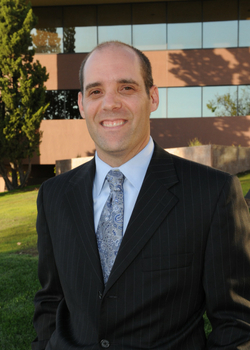My son Sammy is in second grade. For the last few weeks, Sammy has come home from school on Friday with a detailed description of how certain sensory organs work, mechanically. Our Shabbat table now includes a review of body parts and then a wonder-filled conversation about the amazing human body. Is it not miraculous, even with a scientific understanding that our ears transform sound waves into neurological stimuli with which we are then able to act or react to what is sensed externally? And our sight - how the eyes collect reflected light, filter it for clarity, and align it again for the mind's interpretation...describable, and yet incomprehensible.
This week's Torah portion, Vayera, opens in a unique manner, stating, "Then God appeared to him (Abraham) in the groves of Mamre...(Genesis 18:1)" Rabbi Yehuda Nachshoni, in his interpretation of this Torah portion, in Studies in the Weekly Parasha, provides a thorough understanding of God's appearance to Abraham. The question Nachshoni investigates is why, unlike any other instance in the Torah, does God appear but not speak? According to Rashi and many classical commentators, God visits Abraham as Abraham recovers from his circumcision which occurred at the end of the previous Torah portion, Lech Lecha. From this perspective, God's visitation is a reward to Abraham following his courageous demonstration of faith - circumcising himself at the age of 99.
Other commentators present different arguments, claiming that the nature of God's appearance was in fact a prophetic vision. Maimonides, writing in the 12th century, presents the controversial claim that all of the events of this first section of this portion, from God's appearance before Abraham through the saving of Lot, are in fact one prophetic vision, with none of the events actually unfolding. The conversations between the rabbis surrounding Abraham's experiences on that hot day in the groves of Mamre are fascinating, but I wonder too about Abraham's ability to "see." What enables Abraham to actually "see" God's presence? Is it perhaps Abraham's watchfulness, his openness, if you will, to the spiritual that enables Abraham to sense God's appearance? How can Abraham detect that which is undetectable to others?
Let me return to the details of human sight. As was most eloquently detailed by Rabbi Ely E. Pilchik in his sermon entitled Eyes, there is much in fact that the eyes cannot see. The range of light waves that the human eye can detect is minute in regard to the total spectrum of light. Imagine for a moment all of the wondrous light waves flying all around you, right now, of which you are completely unaware.
Rabbi Pilchik describes three eyes. The first eye refers to our physical eye. It is this eye that, obviously, provides us with our most immediate access to the physical world. It is the sense that opens us to the emotions of others as we interpret their facial expressions. And through the sense of sight we gaze upon the vastness of the sky, or the expanse of the sea. The second eye is the eye of the mind. This eye is the eye that transforms a rocky peak from mere granite and dirt into inspiration and awe. And it is this eye that is honed through knowledge, training, and understanding. It is the mind's eye that opens us to perception and to a depth of understanding beyond factual data. It is the eye, in Pilchik's words, of "hind-sight and insight and foresight".
But there is yet another eye, the soul's eye. The soul's eye is most unlimited. It is the eye that senses the "mystique of the eternal faith (Pilchik)." The soul's eye is the eye through which Abraham envisions the ethical righteousness he seeks in a land that God will show him. It is this soul's eye through which Abraham sees the human indignities in Sodom, and yet argues with God to save the wicked many for the sake of the righteous few. And it is the soul's eye through which Abraham envisions three travelers, and seeing their need for loving-kindness, despite his own discomfort from his circumcision and from the heat of the day, inspires Abraham to run out of the entrance of his tent to greet them. And it is before this soul's eye that God appears to Abraham.
This spiritual eye, working well beyond the mechanical limitations of your physical eye, and even beyond your less limited mind's eye, grasps the "vision of that which stands beyond and behind and within (Pilchik)." And it is your spiritual eye that, if opened, may see God in your midst.
Shabbat Shalom.

